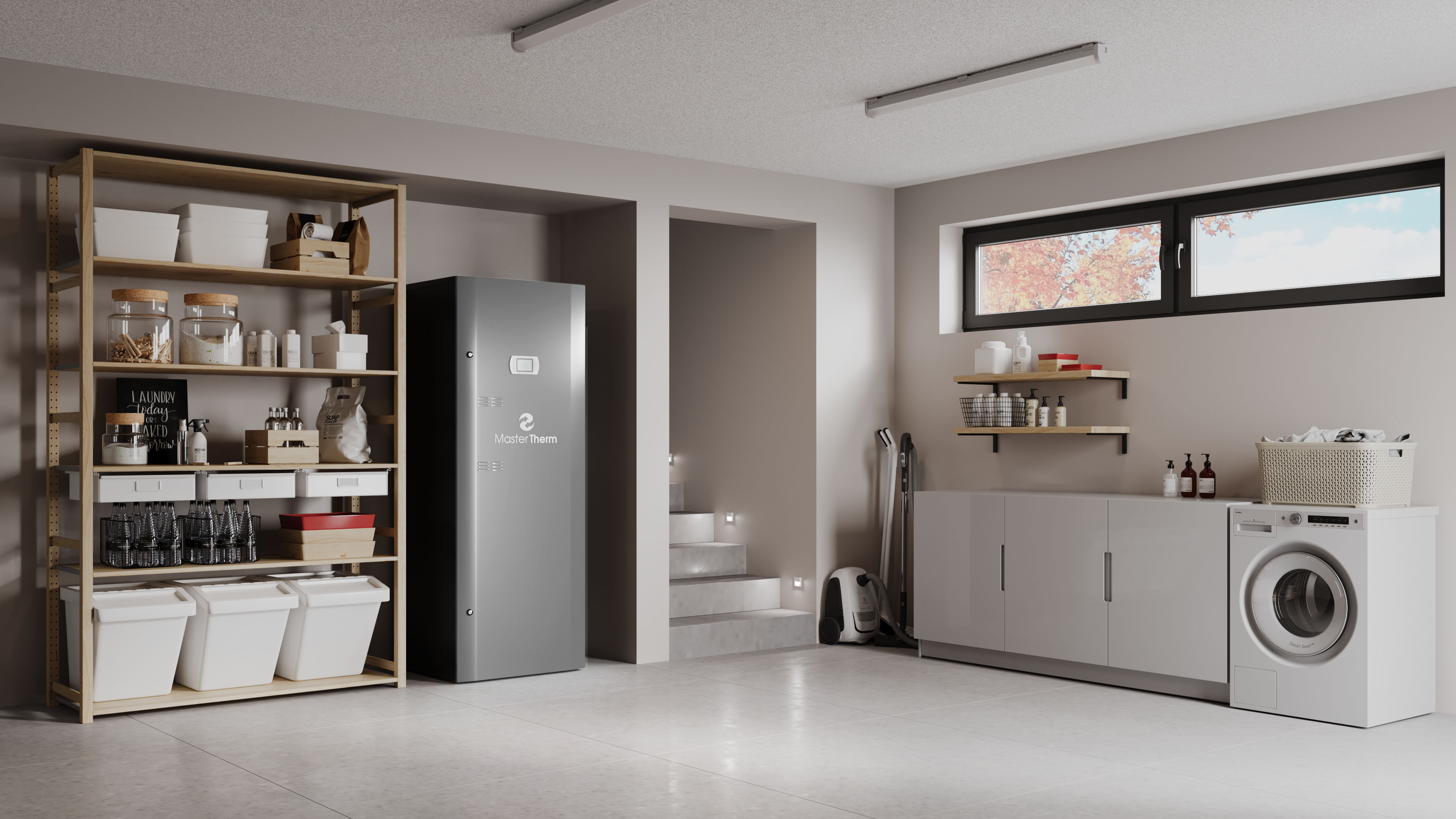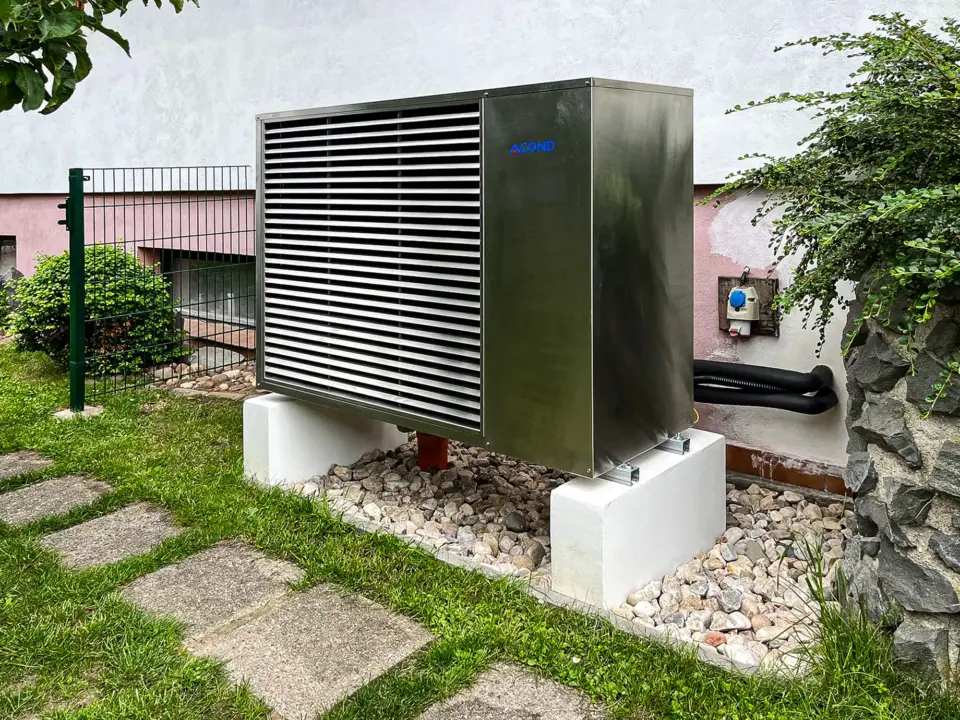Does A Heat Pump Need Planning?
In recent years, the global conversation around sustainability and energy efficiency has intensified, prompting many homeowners to seek alternative heating and cooling solutions. Among these alternatives, heat pumps have risen to prominence for their ability to provide both warmth in the winter and cooling relief in the summer, all while significantly reducing energy consumption and carbon emissions. However, before embarking on the journey of installing a heat pump, it's essential to navigate through the considerations and regulations that govern this process.
Understanding Heat Pumps:
Heat pumps operate by transferring heat from one place to another, utilising a small amount of energy to move heat from a cold space to a warm space, making the warm space warmer and the cool space cooler. This technology makes them highly efficient. There are several types of heat pumps available, including air-source, ground-source (geothermal), and water-source heat pumps, each with its own set of advantages and considerations.
Choosing the Right Heat Pump:
When selecting a heat pump for your home, one of the primary decisions you'll need to make is whether to opt for an Air-Source Heat Pump (ASHP) or a Ground-Source Heat Pump (GSHP). Each type offers distinct advantages and considerations, depending on your location, budget, and specific requirements.
 Ground source heat pumps (GSHPs) utilise the constant temperature of the ground as a heat source, providing highly efficient heating and cooling year-round. Although they tend to have higher upfront costs, GSHPs offer several advantages:
Ground source heat pumps (GSHPs) utilise the constant temperature of the ground as a heat source, providing highly efficient heating and cooling year-round. Although they tend to have higher upfront costs, GSHPs offer several advantages:
1. Efficiency: GSHPs are among the most energy-efficient heating and cooling systems available, as they harness the stable temperature of the ground for heat exchange.
2. Long-Term Savings: While GSHPs have higher initial costs, they can result in significant long-term savings on energy bills, particularly in regions with extreme temperature fluctuations. Additionally, the increased cost of a GSHP is the investment to bury the pipe in the ground and this is an investment to provide energy for up to 100 years.
3. Durability: GSHP systems have fewer moving parts and are typically located indoors or underground, reducing exposure to harsh weather conditions and extending their lifespan over ASHP
4. Environmental Impact: GSHPs have a lower environmental impact than ASHPs since they do not rely on outdoor air temperature fluctuations for heat exchange.
GSHP’s with a horizontal collector require ample space for ground loops, the available land needs to be at least two and a half times larger than the entire floor area of the property. Alternatively vertical boreholes can be drilled to install the ground collector pipe, meaning less space is required, making them more accessible to those with less land available. You just need enough space to get the drilling equipment into the location. Vertical boreholes are typically more efficient than horizontal collectors as the source of heat is deeper in the ground and more suited to cooling applications.
There also needs to be space to locate the heat pump and cylinder inside the property. There is also the option for GSHP’s in high density homes through
shared ground loops.
 Air source heat pumps (ASHPs) extract heat from the ambient air outside the home and transfer it indoors during the heating season. They operate efficiently in a wide range of climates and are generally more affordable to install compared to GSHPs. Here are some key considerations for ASHPs:
Air source heat pumps (ASHPs) extract heat from the ambient air outside the home and transfer it indoors during the heating season. They operate efficiently in a wide range of climates and are generally more affordable to install compared to GSHPs. Here are some key considerations for ASHPs:
1. Installation Costs: ASHPs typically have lower upfront installation costs since they do not require extensive excavation or ground loop installation.
2. Space Requirements: ASHPs are compact and installed outdoors so do not require internal space inside the home.
3. Efficiency: While ASHPs are generally efficient, their performance will decline in extremely cold climates, as they rely on the heat available in the outdoor air so work harder Although they will still provide you all your heating and hot water needs and still significantly better than fossil fuel boilers.
4. Maintenance: ASHPs require regular maintenance, including cleaning filters and outdoor coils, to ensure optimal performance and efficiency.
Considerations Before Installation:
Before installing a heat pump system, homeowners must carefully assess various factors to ensure optimal performance and compliance with regulations:
1. Energy Efficiency: A well-insulated home will enhance the performance of the heat pump and reduce energy costs.
2. Operating Temperature: With any heat pump system its important to have a heating system (UFH or radiators) to operate at a water temperature as low as possible to give higher efficiency.
3. Space Requirements: Depending on the type of heat pump chosen, you'll need adequate space for installation.
4. Cost and Financial Incentives: Evaluate the upfront costs of purchasing and installing a heat pump system. While the initial investment may seem daunting, government incentives such as the Boiler Upgrade Scheme, along with utility companies offering incentives such as low electricity tariffs (such Agile Octopus) and 0% VAT, to encourage the adoption of energy-efficient technologies the upfront costs can be less and originally anticipated.
5. Noise Considerations: All our heat pumps are super quiet but some heat pump systems can generate noise during operation, especially air-source units. Consider the location of outdoor units to minimise noise disturbance to neighbours and occupants.
Regulations and Planning Permission:
For homeowners considering heat pump installation, understanding planning permission requirements is essential.
Generally, both GSHP and ASHP installations fall under Permitted Development Rights, therefore meaning that they can be installed in a property without the need to apply for planning permission.
Permitted Development Rights (PDR) refer to a set of rights granted by planning legislation that allow certain types of development and changes to be made to a property without the need to obtain formal planning permission from the local planning authority. These rights are granted by the government to streamline the planning process for minor works and alterations to properties, aiming to provide homeowners with more flexibility and autonomy over their properties while still ensuring appropriate development within the community.
Permitted Development Rights typically cover a range of alterations and developments, including but not limited to the installation of Heat Pumps and Solar Panels.
However, certain factors, such as the property's location (e.g., within a conservation area or designated as a national park) or being a listed building, may necessitate seeking planning permission.
Additionally, ASHPs, due to their potential noise generation, may require special consideration regarding their location. In Wales an ASHP is required to be 3m away from your neighbours’ boundaries to minimise noise disturbance and visual impact, whereas in England this requirement is only 1m.
Financial Incentives:
To encourage the adoption of heat pump technology, the Boiler Upgrade Scheme (BUS), which offers a one-time payment of £7,500 to homeowners to offset the initial cost of heat pump installation has been introduced by the government.
To qualify for the BUS, the property and renewables system has to meet certain criteria:
• The product itself must be MCS approved.
• The system must be installed by an MCS approved installer
• The installation of the system must adhere to strict guidelines
• The Property must have a valid EPC
For more information on the Boiler Upgrade Scheme, we recommend you visit the
Ofgem website.

 Ground source heat pumps (GSHPs) utilise the constant temperature of the ground as a heat source, providing highly efficient heating and cooling year-round. Although they tend to have higher upfront costs, GSHPs offer several advantages:
Ground source heat pumps (GSHPs) utilise the constant temperature of the ground as a heat source, providing highly efficient heating and cooling year-round. Although they tend to have higher upfront costs, GSHPs offer several advantages: Air source heat pumps (ASHPs) extract heat from the ambient air outside the home and transfer it indoors during the heating season. They operate efficiently in a wide range of climates and are generally more affordable to install compared to GSHPs. Here are some key considerations for ASHPs:
Air source heat pumps (ASHPs) extract heat from the ambient air outside the home and transfer it indoors during the heating season. They operate efficiently in a wide range of climates and are generally more affordable to install compared to GSHPs. Here are some key considerations for ASHPs: Facebook
Facebook LinkedIn
LinkedIn Twitter
Twitter













